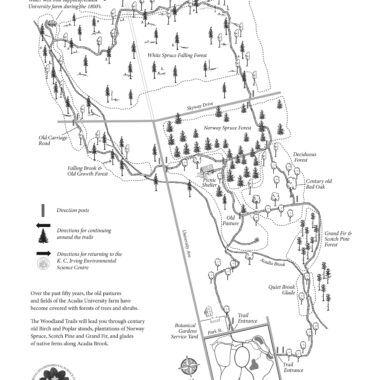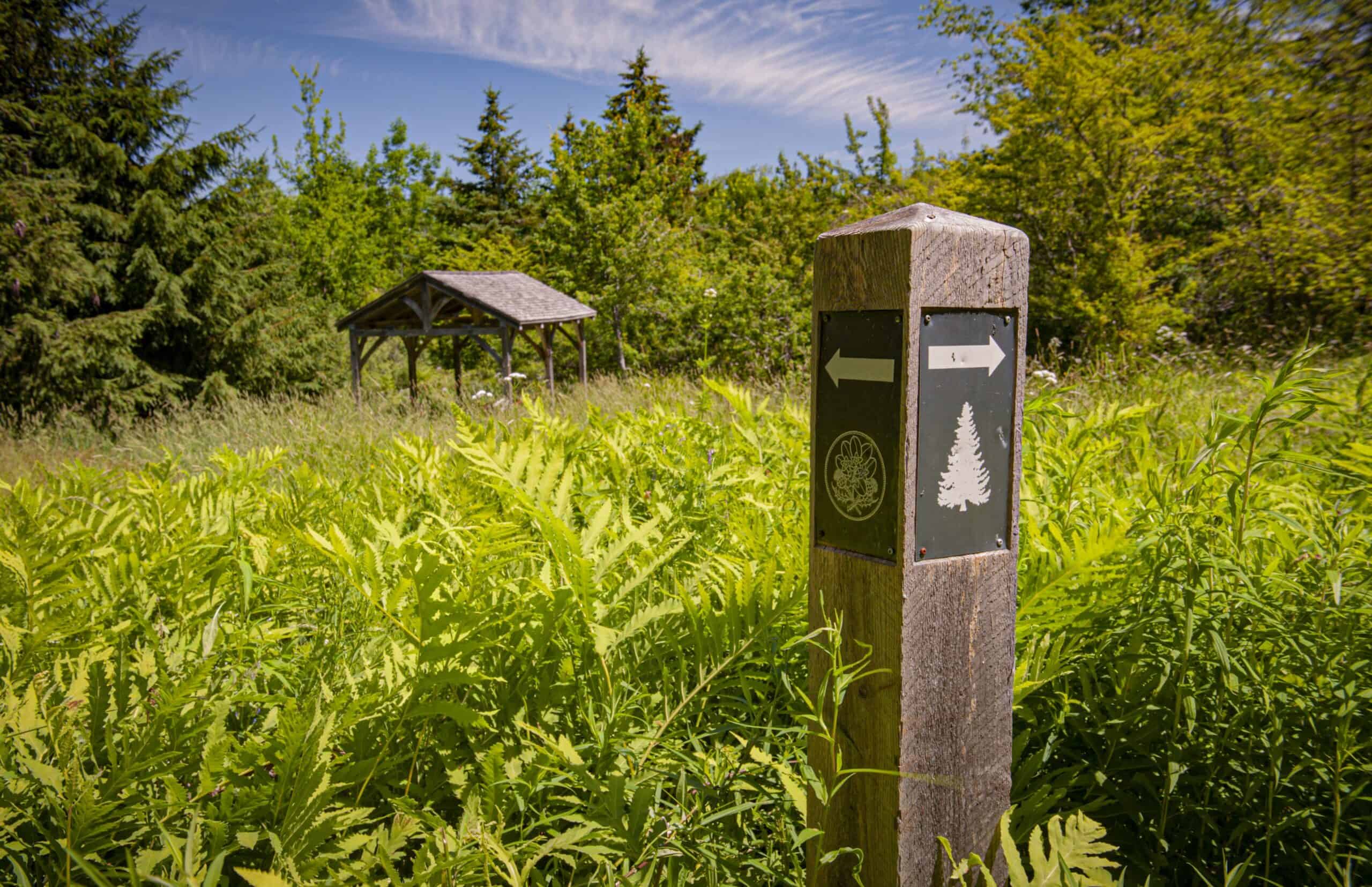
Follow the tree symbol to hike further into the woods or follow our emblem back to the start.
Over 50 acres of forested land are adjacent to the K.C. Irving Environmental Science Centre and Harriet Irving Botanical Gardens. The land includes scenic woodland trails designed by Mr. Arthur Irving that are accessible to the public. The trails are a popular destination for Wolfville residents, Acadia students, and tourists visiting the town. Acadia is one of a handful of Canadian universities that have significant forested acreage as part of their main campus.
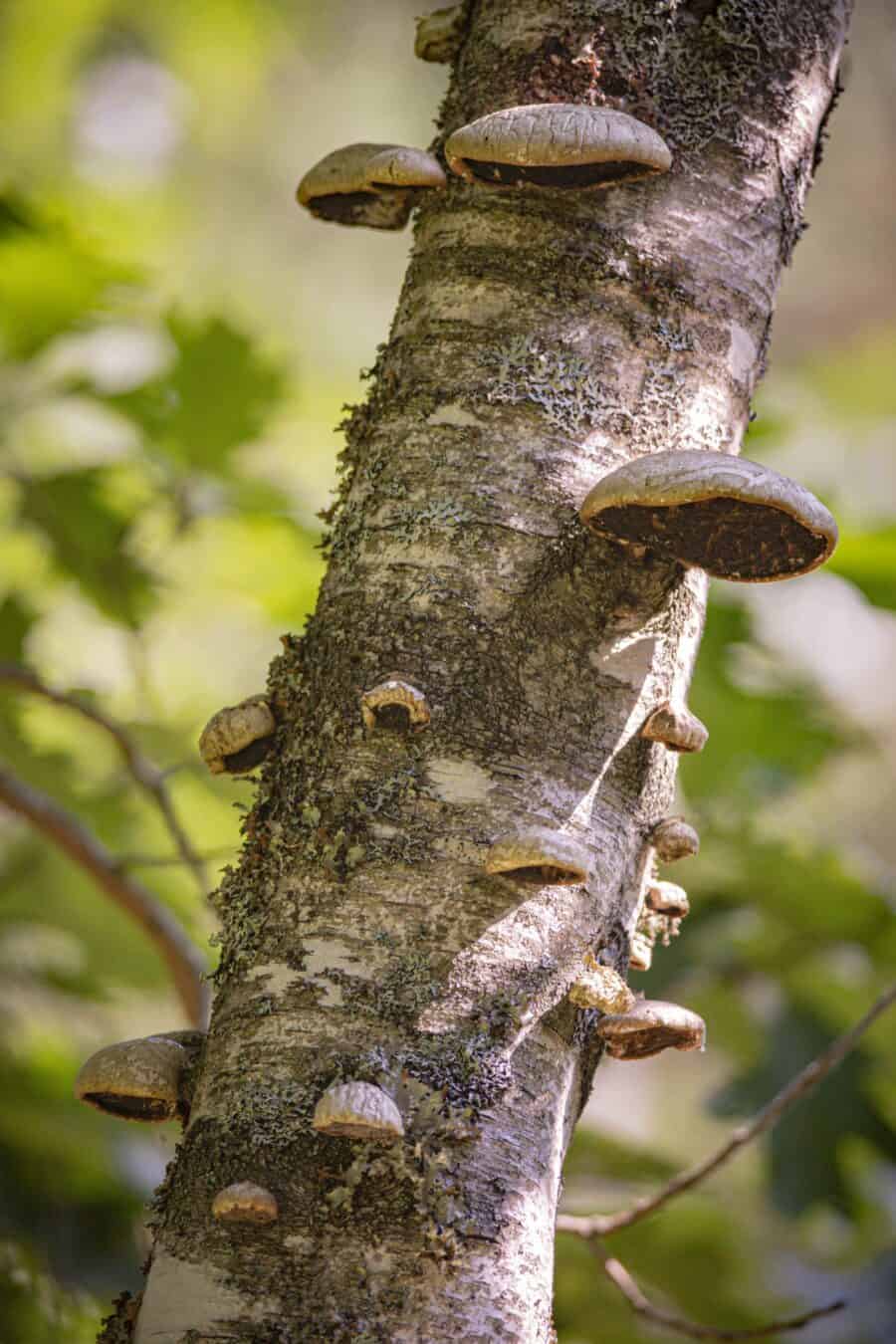
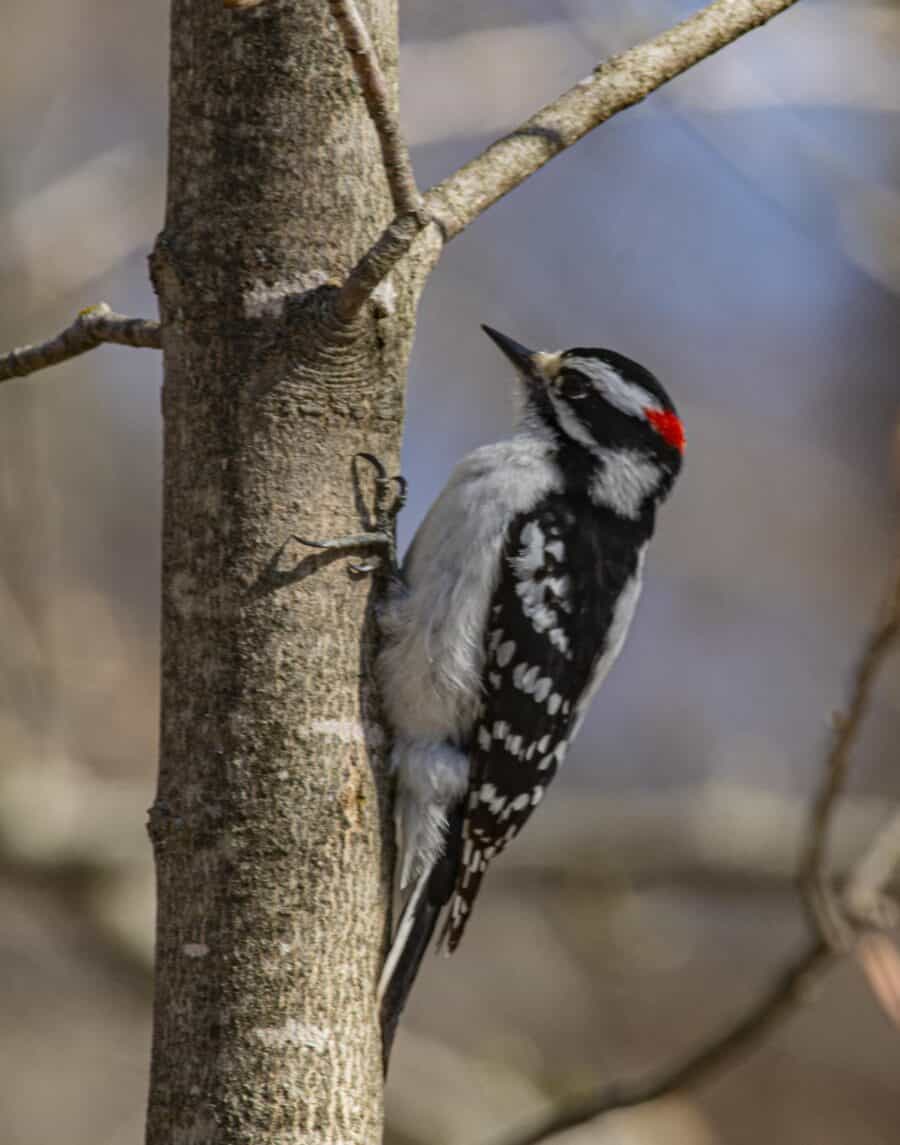
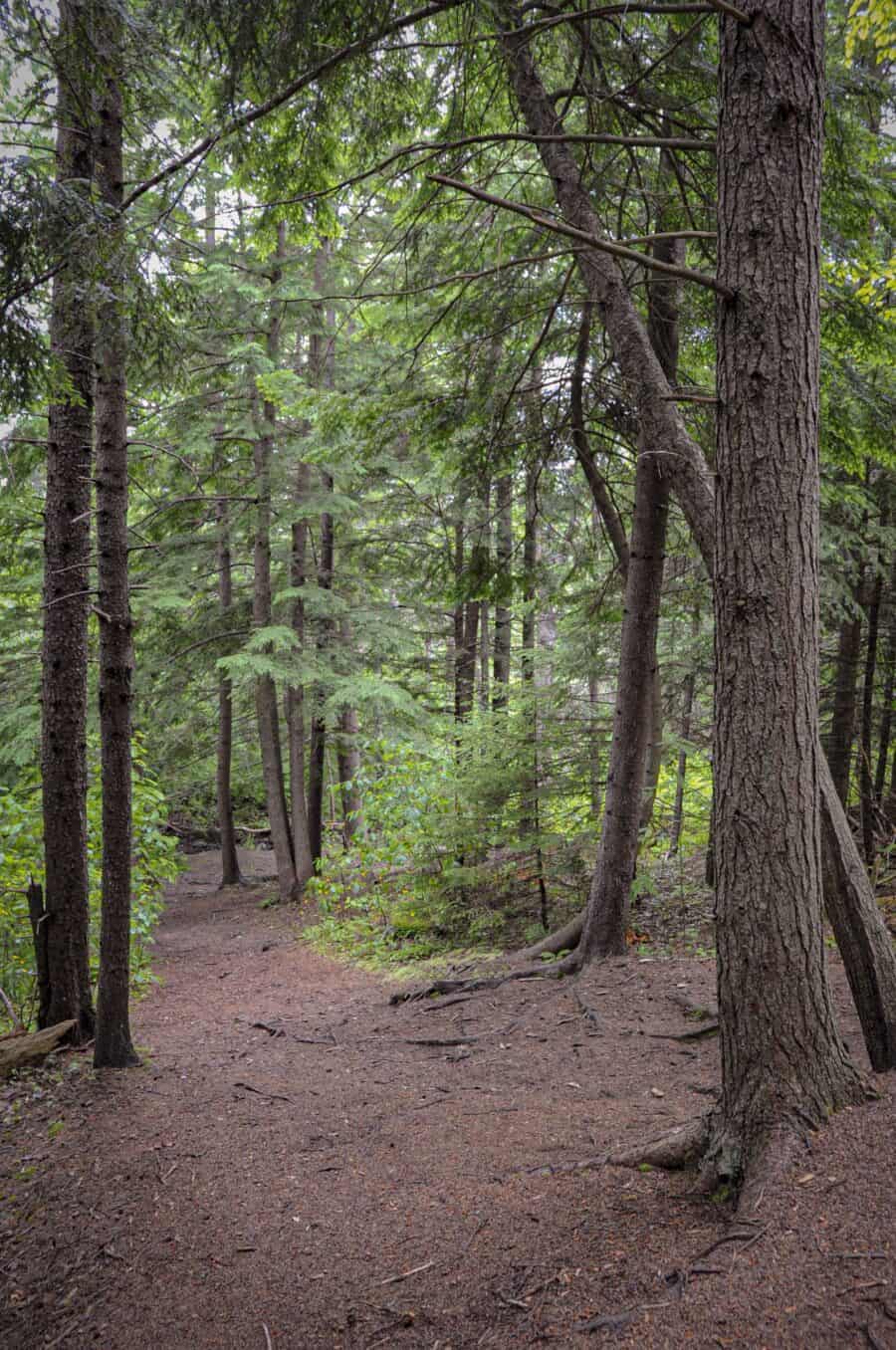
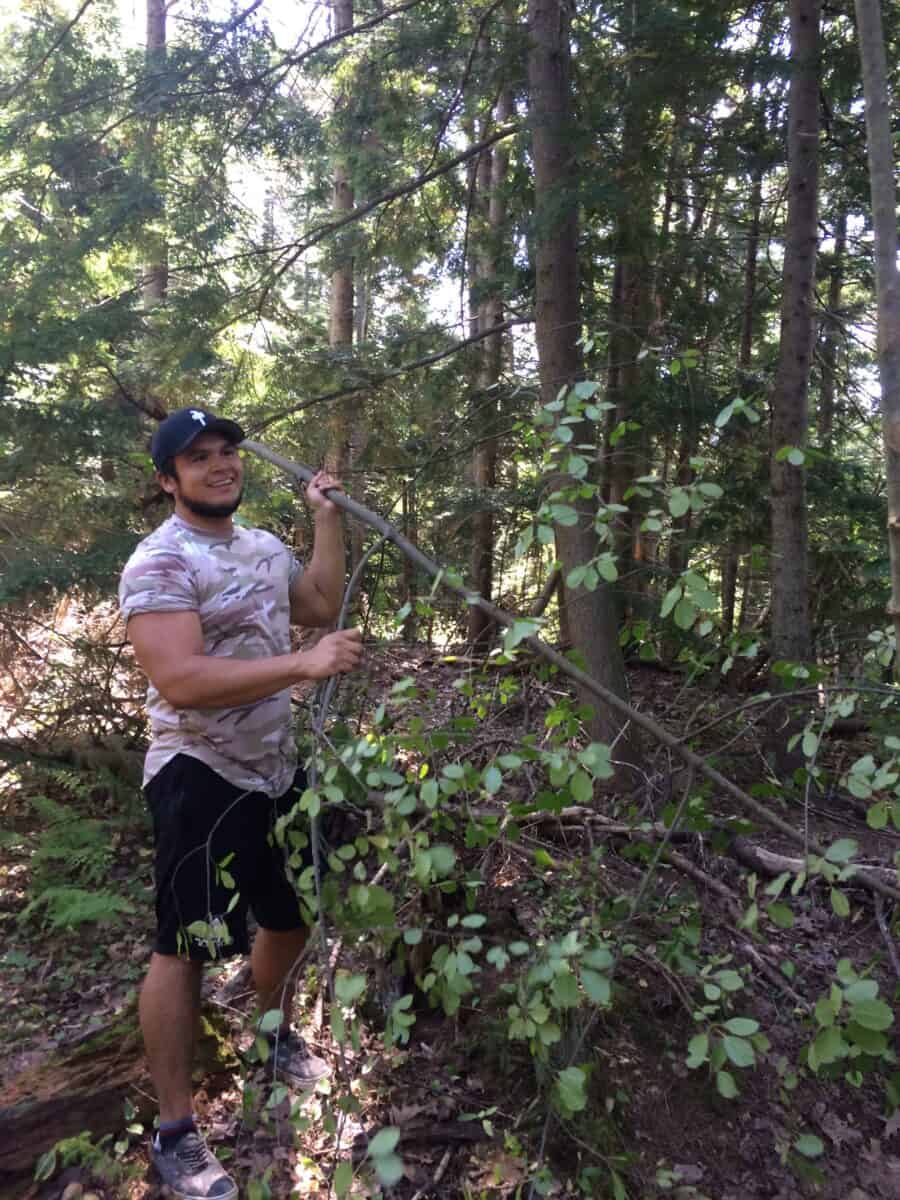
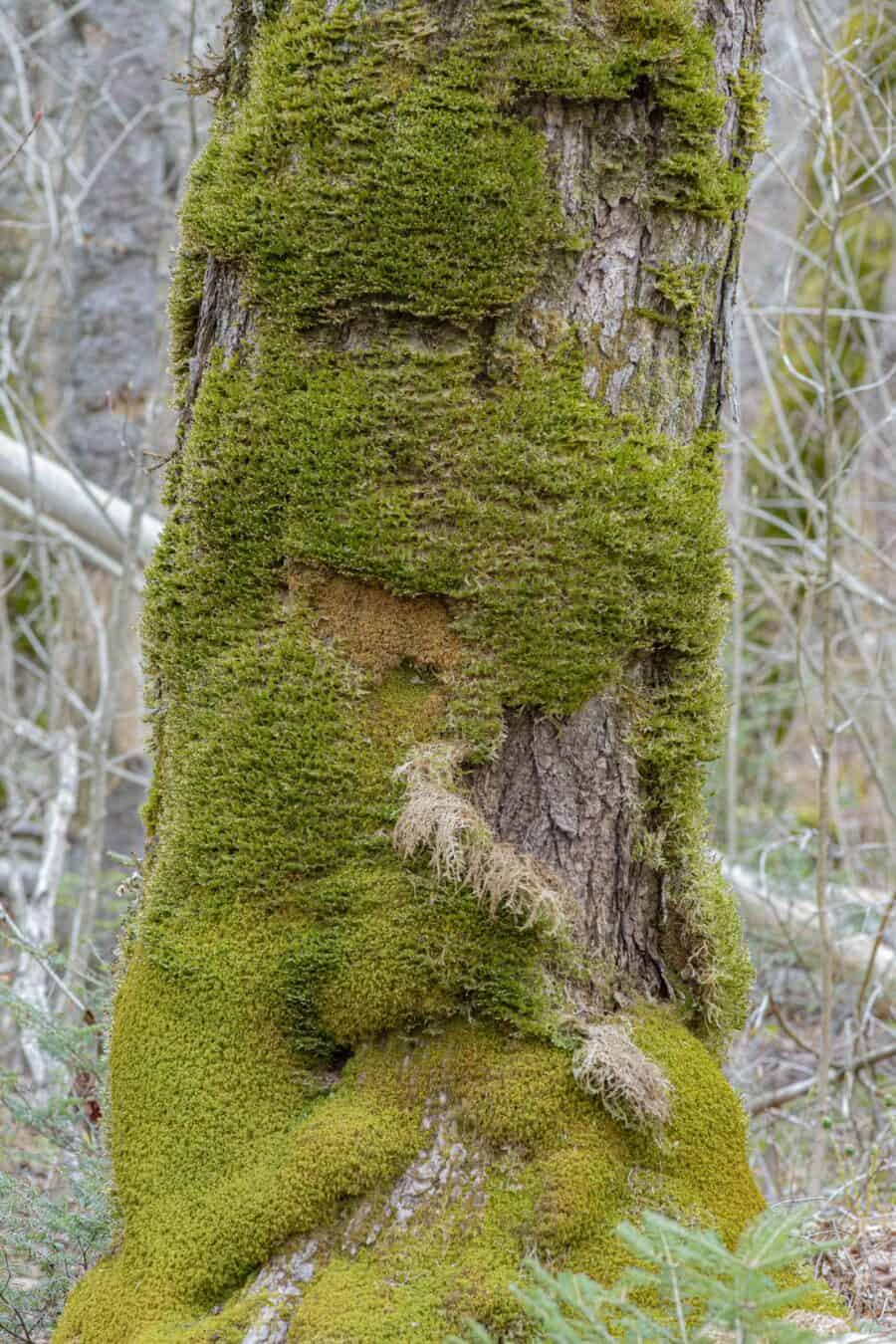
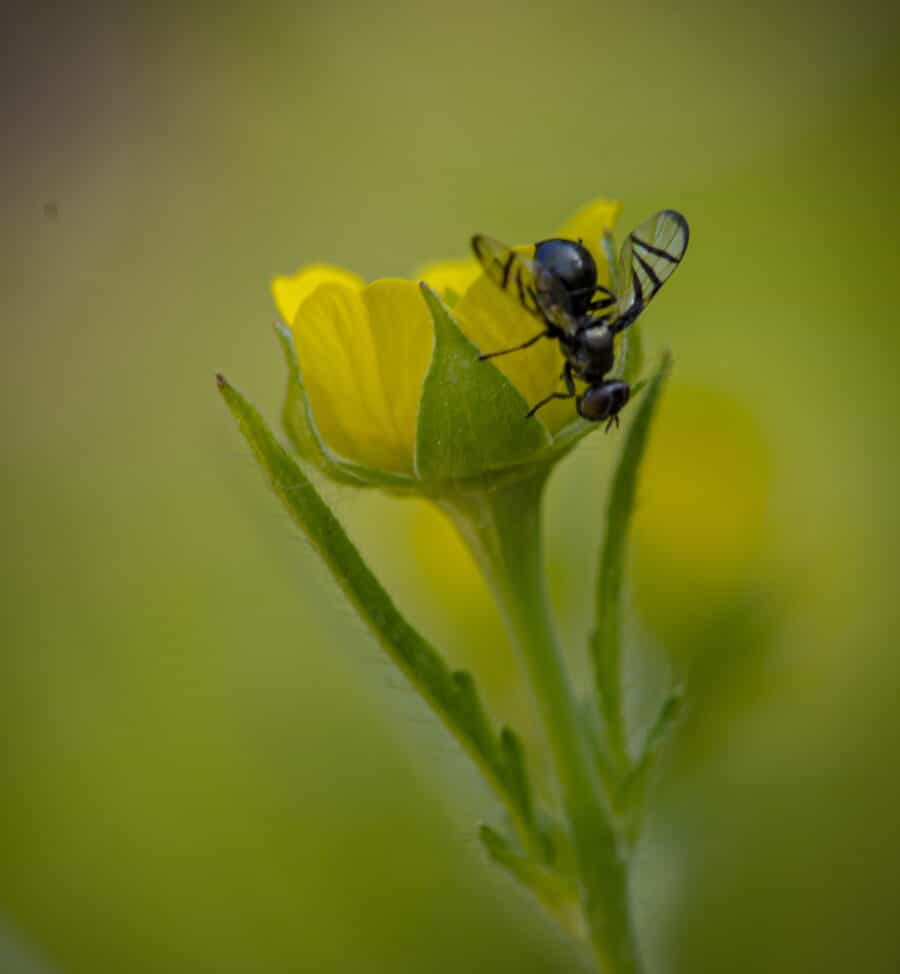
Visiting:
The Woodland Trails include several loops, the longest being 1.5km in length. The overall difficulty is easy to moderate, given the slope and natural terrain. Dogs, bicycles, and snowshoes are welcome on the trails!
We ask that you practice the ‘leave no trace’ principles and pack out what you pack in. There are no garbage containers on the trails as we do not want to disturb the natural food chain of the forest.
Several invasive species including garlic mustard, multiflora rose and buckthorn occur on the Woodland Trails. Please remember to clean your shoes and gear before entering and leaving the Trails to avoid bringing along unwanted hitchhikers.
History:
The trails are an example of regenerating forest after anthropogenic disturbance. Much of the woodland was once farmed when Acadia University had to be self sufficient in feeding the student population during the 1800’s. While hiking the trails you can visit the old well that supplied water to livestock.
The trails include a Norway spruce plantation that was part of a research project in the 1970’s examining species suitability for industrial forestry. Norway spruce is not native to the Wapane’kati/Acadian Forest Region and the area is slowly regenerating as the spruce reach the end of their lifespan. Each year Acadia students and local school children help us out by planting new hemlock trees on the edges of the Norway spruce forest.
Education:
The woodland trails are an important educational resource for Acadia University. Hands on outdoor activities on the trails are part of many courses in biology, environmental science, geology and community development. Research projects by faculty and students have also been conducted on the trails ranging from entomology diversity to impacts of nature based education. Many student-led activities also occur on the trails and the picnic shelter is a popular meeting space for campus groups.
Please follow these links to learn more about student events that have recently occurred on the woodland trails.


 Acadia University
Acadia University
